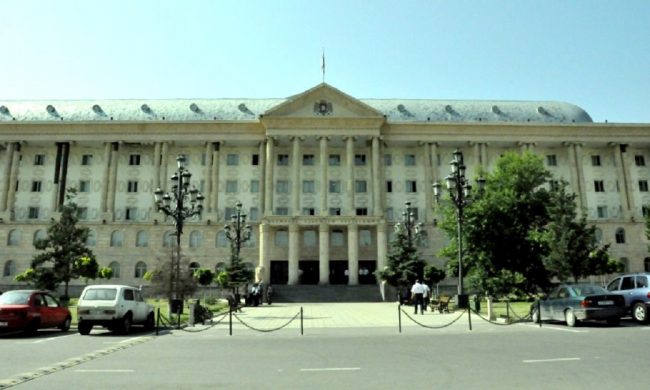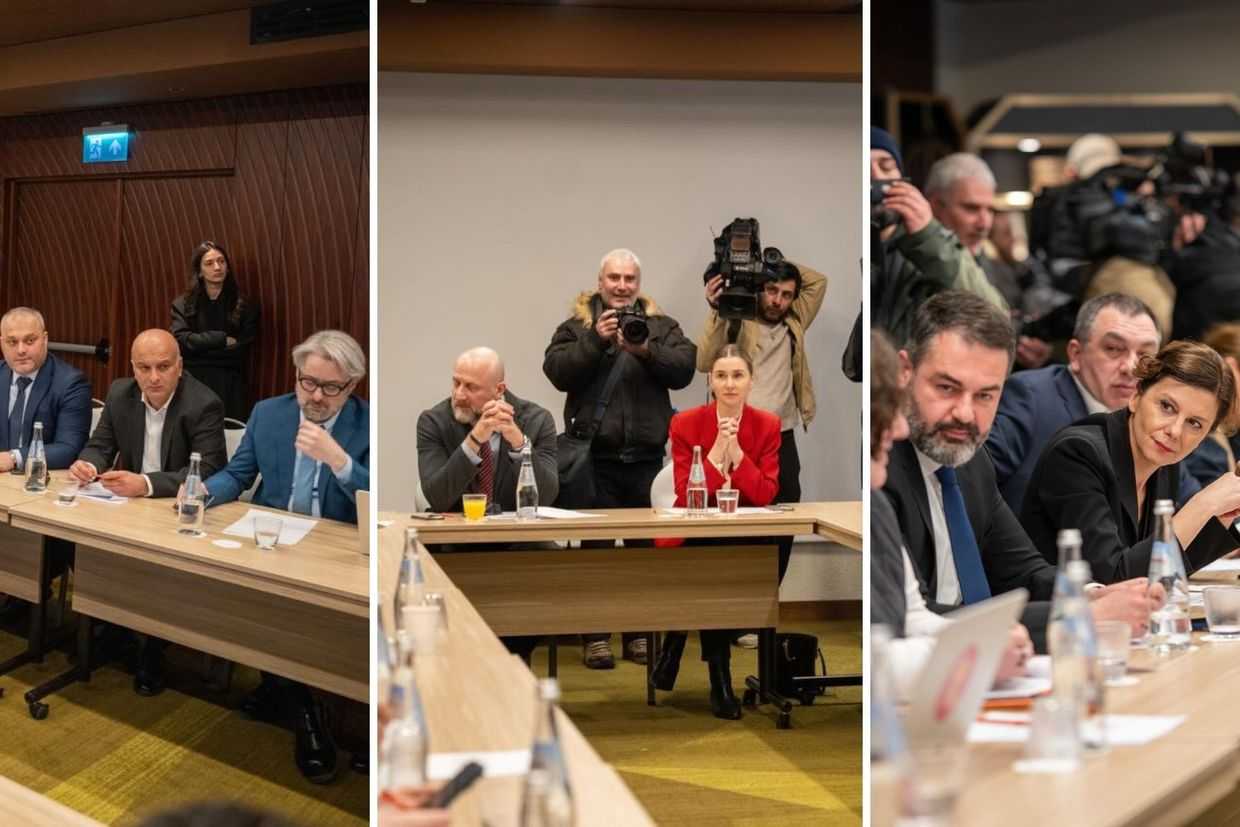

A Georgian politician who used a homophobic slur against a queer rights activist on TV has been issued a symbolic fine of ₾1 ($0.37) by Tbilisi City Court. While the ruling set a precedent as the first time a fine has been issued on these grounds, the plaintiff, Levan Berianidze, said the ruling could give the green light for others to express homophobic hate.
On Friday, the court ruled in favour of Berianidze, who had sued Beso Danelia, a politician from the United Democratic Movement Party, for violating his dignity.
The incident in question occurred in April 2016 on Kavkasia TV.
Berianidze, who heads local queer rights group the Equality Movement, claimed Danelia insulted him and then tried to physically attack him but was held back by staff of the television company.
He appealed to the court two years ago demanding compensation of ₾500 ($190) from Danelia for moral damages.
In its ruling, the court upheld Berianidze’s claim that his dignity was violated by the homophobic slur, but ordered Danelia pay only ₾1, the minimum fine.
‘Publicly insulting queer people costs ₾1. No wonder the LGBT community is emigrating from Georgia en masse and does not trust law enforcement’, Berianidze wrote on Facebook following the ruling.
Berianidze told OC Media that the court had ridiculed him in their judgement.
‘The court’s ruling is basically mocking, and it will encourage homophobic behaviour, because they will know that it will cost them only ₾1’, Berianidze told OC Media.
He said he was considering appealing the ruling.
Also on Friday, Tbilisi City Court ruled on the case of a 15-year-old boy who attacked a queer rights activist on International Day Against Homophobia, Transphobia, and Biphobia.
The 15-year-old punched queer rights activist Nika Gorgiladze in the face as he gave a speech about love in front of the Government Chancellery building on 17 May.
His 15-year-old assailant was immediately detained by police as he attempted to flee the scene.
The prosecution brought charges of persecution with violence against him, punishable by a fine, house arrest, or up to 3 years imprisonment.
On 6 December, the court satisfied a motion by the defendant’s lawyer to enrol the boy into the juvenile diversion programme, meaning he might not be prosecuted as an adult and will instead be observed by a social worker.
According to the programme’s website ‘the goal of the programme is to help the juvenile become an improved citizen in society’.
[Read more about 17 May in Tbilisi on OC Media: Queer rights activists hold ‘guerrilla IDAHOTB demonstrations’ in Tbilisi after far-right threats]
International Day Against Homophobia
Queer rights activists held a number of small ‘guerrilla demonstrations’ in Tbilisi on 17 May to mark International Day Against Homophobia, Transphobia, and Biphobia. Conservative and far-right groups held their own events, vowing to create a ‘Georgia without sodomy’, with the Church organising their own event for ‘family values’.
A major queer rights rally which was originally planned for 17 May was cancelled a day before, with activists citing security concerns due to ‘an unprecedented mobilisation of hostile groups’, who they believed were getting ready for ‘unrest and civil confrontation’.
Instead, queer rights groups organised several unannounced demonstrations in front of various government buildings, reading out their demands to the corresponding branches of government and lighting flares in the rainbow colours.
Activists demanded the authorities prevent hate crime and publicly condemn homophobia, to make it easier for transgender people to choose the sex marker in their identity documents and make sex reassignment surgery available to them, to protect intersex people from dangerous medical procedures, and to stop homophobic bullying in schools.
Queer rights in Georgia
A poll published in August by the National Democratic Institute (NDI) showed a small gain since 2015 in the public support for queer people in Georgia. Nevertheless, queer people remain one of the least supported groups, with only 23% of the Georgian population stating that the protection of their rights was important.
The survey, conducted in June 2018, showed a 2% gain in support for queer people compared to 2015, when 21% of the population considered the protection of their rights important.
The results showed that 44% think the protection of queer rights was not important, while 26% had a neutral attitude.
NDI asked a similar question with regard to other minority groups, with 60% answering that it was important to protect the rights of religious minorities, 60% for ethnic minorities, and 93% for people with disabilities.
The survey was carried out for NDI by CRRC Georgia between 23 June–8 July, with 2,409 people interviewed and a 49% response rate. NDI said the average margin of error was +/- 1.9%.
[Read more about attitudes towards queer people in Georgia on OC Media: Only 23% of Georgians think queer people’s rights are important, poll shows]
Photo: Tabula









